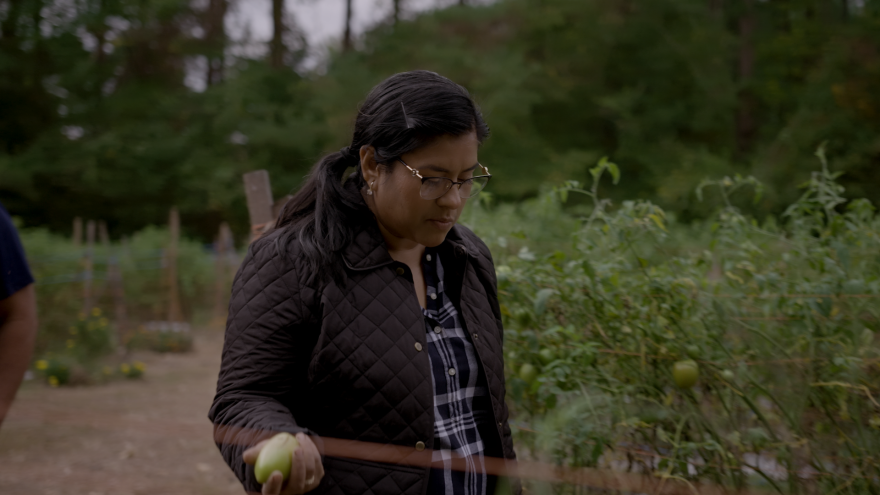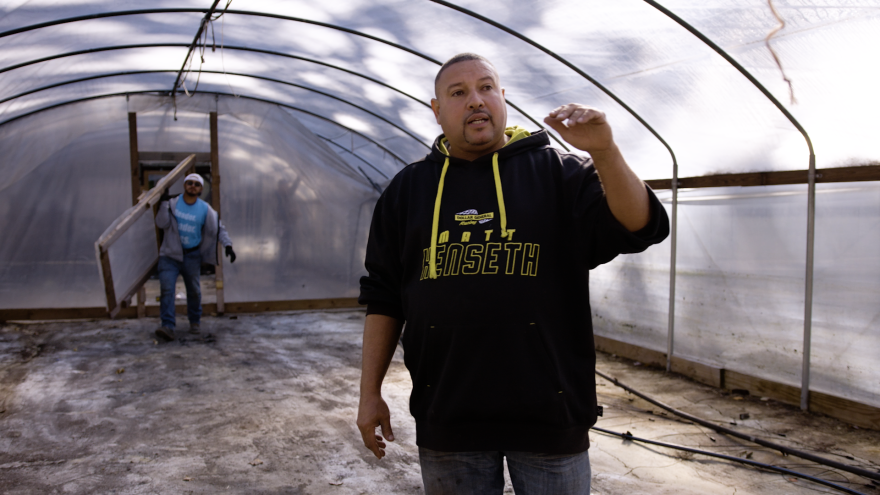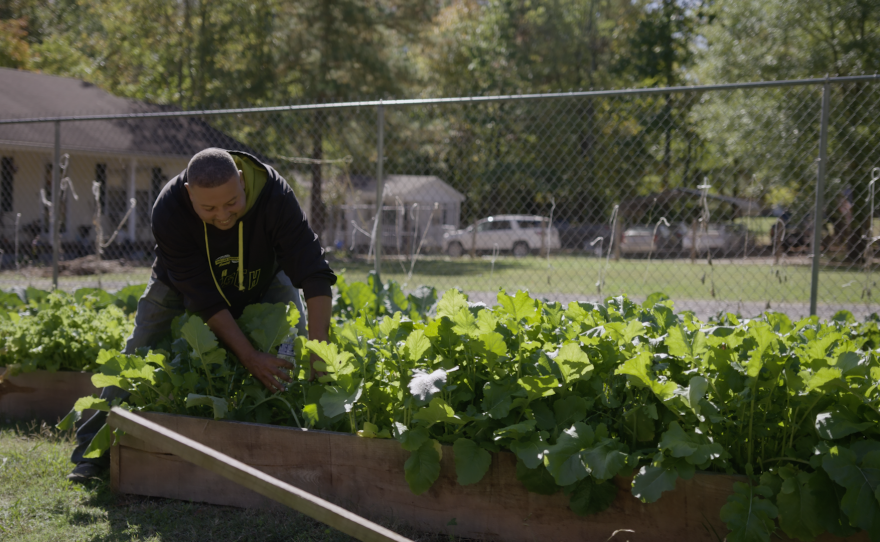Margarita Mendoza set off on her dream to become an independent farmer in 2012, when she and her husband established Pueblos Farms in Chuckatuck. But Mendoza, who immigrated from Sinaloa, Mexico, faced a steep learning curve trying to grow crops in the Mid-Atlantic region.
“We tried to grow tomatoes with the kinds of temperatures that were in Sinaloa — with the knowledge of Sinaloa,” Mendoza said. “But it’s very different [here]. We didn’t have the knowledge of how to grow this plant. This tomato. In this soil — Virginia.”

As urban development swallows more of Virginia’s farmland, many immigrant farmers struggle to find land. And those who do, like Mendoza, face unique challenges. Recognizing the value of diversity in farming and the need for small farmers to help sustain our food supply, Virginia State University runs a Small Farm Outreach Program to direct resources, information and support to immigrant and minority farmers.
“There are lots of large farming operations, but they cannot feed the world,” says William Crutchfield, who directs the program. “They need the help of the little guys as well. And that’s our goal here — to help the small socially disadvantaged guy.”

VSU’s outreach program covers a territory that includes all of Virginia and several counties in Maryland and North Carolina. One participant is Pedro “Ari” Lopez, who came to the United States from the Dominican Republic. There he was familiar with methods of growing tropical plants such as limes, avocados, guava and papaya. So, when he arrived in Virginia and tried to grow broccoli, the results were disappointing.
“I didn’t have any experience how to trim it, when to plant it,” he said.

Although he farms less than 1 acre in Lawrenceville, Lopez has learned from the program how to grow crops in a hoop house or high tunnel, which extends the growing season.
“In one of these hoop houses, he can produce what he could do maybe on two or three acres in an open field,” said Leonel Castillo, a VSU program assistant. “Everything here is under his control.”
Now that his farm is more productive, Lopez spends four days a week driving to farmers markets or delivering fresh produce to retailers who depend on his crops. "When you buy produce from great big company, I don’t want to say they don’t know what they’re doing, but also they have to apply strong chemicals,” said Lopez. He held up a cucumber and said proudly, “This one, it was picked yesterday.”
Lopez has also learned to curate some of his crops to serve the immigrant community. “I plant stuff for different cultures,” he said. “Guatemala, Salvador, Honduras. One culture likes something more than in the other country. And that’s why I’m here for them.”
The program helps beginner farmers understand the technologies that can improve their operations — and it supports their efforts. “There’s a lot of those pieces of equipment these farmers can’t afford,” said Crutchfield. “So, we purchase those types of equipment through grant funding, and then we make it accessible to the farmers. It gets you back up on your feet and then we’ll pass it on to the next farmer that may be in distress.”
Back at Pueblos Farms, Margarita Mendoza showed off a fresh crop of tomatoes. “I love Roma tomatoes because they’re strong,” she said. “They are sizable and restaurants love them.” Her husband Pablo Ovando added, “The good thing is everything that we produce here stays in the same county.”
The Mendozas have ridden the ups and downs of farm life, like having an entire crop wiped out by flooding. Margarita Mendoza accepts the fact that it’s a process, but it’s one that’s taking her where she wants to go. “Living the American dream, for me, is to have a roof,” she said. “To have food on the table. And to have time for your kids, for your family.
“This is my American dream.”
This article is based on the Agricultores episode from the new VPM docu-series Life in the Heart Land. The series gets to the heart of those creating unique solutions to rural America’s toughest challenges.
Watch Thursdays at 8:30 p.m. on VPM PBS or anytime on the PBS App.
Visit vpm.org/heartland to learn more.


